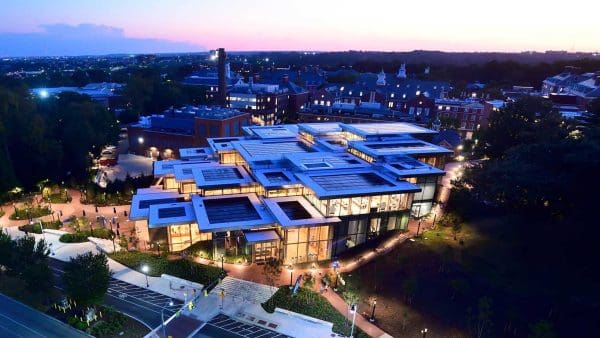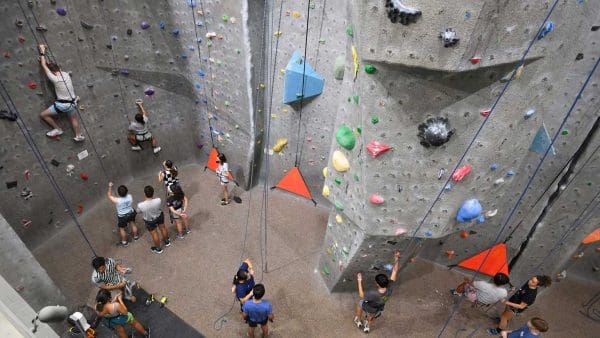
Kevin Shollenberger was appointed Johns Hopkins’ inaugural vice provost for student health and well-being in August 2019 after serving as vice provost for student affairs since 2013. In this newly created position, Shollenberger coordinates all wellness, mental health, and primary care resources for students and trainees across the university, and provides oversight of the Office of Student Disability Services.
How does Hopkins support student health and well-being?
We’re taking a holistic approach—very much a public health model—that is not only about providing counseling and primary care clinical services, but also looking at environmental and cultural factors and offering education and skill building. So, everything from looking at policies that might create unintentional barriers for students seeking support, to what food we’re serving in the dining hall, to providing spaces that encourage well-being, like the expansion of the rec center.
What are our areas of greatest need?
Students are not necessarily aware of the tremendous resources and expertise across the university. So we created wellness.jhu.edu so students can search for resources under one site. Our Instagram account is picking up traction. And we are increasing access to care with new drop-in counseling hours and expanding services for greater equity.
What are some of the most innovative initiatives?
We have been adopting technology platforms that provide tools and skills, connect students to resources, and can serve as a supplement to therapy. Two years ago, we adopted the Calm App, and we have over 7,000 active users. We just launched SilverCloud, an online behavioral health support platform that covers topics including sleep, resiliency, stress and anxiety, and mild depression.
Is greater attention to student well-being part of a larger trend?
Most universities have seen an increased use of mental health programs and services as well as students self-identifying as having more mental health challenges. Part of it is reduced stigma around mental health, so people are more willing to come forward. This generation is also experiencing a lot of pressures, from financial to the effects of social media.
I’m thrilled that we are taking responsibility for these goals as a community, creating a culture of care where we prioritize our own well-being and relationships with others.




